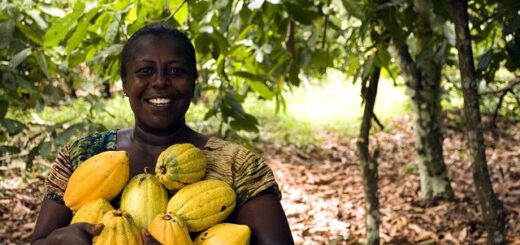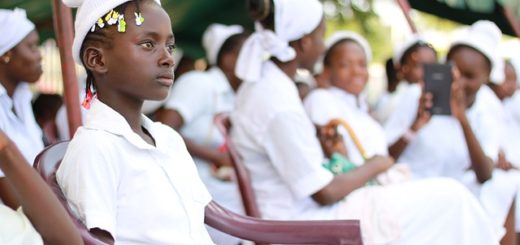Consultancy Services for ICS Last Mile Entrepreneurs’ Capacity Needs Assessment and Training Curriculum Development
Practical Action is a change-making organization that works in unconventional ways. We bring people together in bold collaborations, using knowledge and innovation, to build futures free from poverty and help shape a world that works better for everyone. We put ingenious ideas to work so people in poverty can change their world.
We are an international development agency with more than 50 years’ experience in development and scaling of a range of technologies appropriate to the needs of the poor. Working throughout Africa, Asia and Latin America, Practical Action improves the lives of around one million people every year through access to energy, sustainable agriculture, water, sanitation, hygiene and waste management, and disaster risk reduction.
We are a trusted partner of many communities, governments, development agencies and the private sector. We are uniquely placed as a knowledge broker with a breadth of capacities which enable us to capture and share knowledge in relevant ways for our diverse audiences. We are influential at national level where we work, and globally and considered a “go-to” agency by those seeking to improve lives for men and women living in or vulnerable to poverty.
Our vision is a world where all people have access to the technologies that enable them to meet their basic needs and reach their potential, in a way that safeguards the planet today, and for future generations.
In pursuit of our Vision and Mission, we are committed to advancing gender equality and women’s empowerment through all our work including programs, knowledge sharing, advocacy, external communications, and also through our own organizational development.
Background of the Consultancy Assignment
Practical Action was recently awarded a grant by EnDev-GCF to implement the Kenya ICS Last Mile Entrepreneurs Acceleration Project (KILMEAP); which falls under the EnDev-GCF project ‘Promotion of Climate-Friendly Cooking in Kenya and Senegal’. The project is being implemented in Nakuru and Nyandarua Counties as the main hubs. Additionally, the project proposes to have sub-hubs in Kericho (Kipkellion and Londiani) and Baringo (Mogotio, Kabarnet and Eldama Ravine).
Main Objective of the KILMEAP Project
The project’s main objective is to accelerate the growth of the ICS sector by unlocking the potential of last mile entrepreneurs as ICS distributors in unreached rural communities through market development support. In order to meet this objective, the KILMEAP project will:
1) Support the ICS supply chain by recruiting and developing the capacity of Last Mile Entrepreneurs (LMEs) to engage as ICS installers, and distributors.
2) Unlock the demand for ICS technologies by engaging in culturally appropriate awareness activities.
3) Enhance a conducive market environment for the growth of ICS sector by engaging with county governments and relevant sector stakeholders.
Target Groups
This project mainly targets to work with ICS last mile entrepreneurs (60% women) who retail and/or install ICS in their neighborhood/village in rural areas.
Technologies Promoted
The project is focusing on promoting affordable improved biomass stoves that are locally produced in Kenya, including both charcoal and firewood stoves. The stoves are expected to fulfil the following criteria:
- Firewood stoves: fuel savings of at least 40% over and above, compared to the fuel consumption of the baseline stove (i.e. three stone fire),
- Charcoal stoves: fuel savings of at least 30% over and above baseline stove (i.e. Kenya ceramic jiko).
Gender Mainstreaming in the Project
The project has committed to adopt implementation methods and tools that promote gender equality and inclusion in order to ensure participation and benefit of women, men, the youth and special groups in project activities. More specifically, the project aims to ensure that 60% of the ICS last mile entrepreneurs are women. All activities (including this assessment) will therefore be required to capture gender perspectives through use of gender sensitive tools, methodologies and strategies that will ensure the barriers that hinder participation of the above named groups are identified and addressed during project implementation.
Assignment Scope
a. Training Needs Assessment for ICS Last Mile Entrepreneurs
Last mile entrepreneurs, particularly women, struggle to start and sustainably grow their businesses because of factors such as barrier to accessing appropriate business and technical skills and information. The result of this is weaker business skills and low self-confidence, leading to poor performing businesses. In cognizant of this, the project intends to conduct a training needs assessment to advice on the specific contents of the training curriculum to be used to disseminate knowledge to the LMEs, while ensuring that the training is tailor made to address the LME’s most pressing needs. The assessment is also expected to review the specific needs that women and disadvantaged groups may have that could limit their participation in the trainings in order to identify suitable means through which the trainings will be delivered.
b. Development of LMEs Training Curriculum
Using the needs assessment report, the consultant will be required to develop an appropriate training curriculum for the LMEs. For additional input into the curriculum, the consultant will also engage with ICS producers and identified production centers to ensure that their input is taken into account in the design of the curriculum.
Incorporating the identified capacity gaps, the consultant will develop an integrated LME training curriculum that focuses on enterprise development, ICS technologies, gender mainstreaming and agency empowerment as detailed below:
- Business management (Enterprise development strategies, Last Mile Distribution channels, fundraising strategies for LMEs, marketing and market linkage strategies, customer care, customer acquisition strategies, etc.)
- Gender mainstreaming in the ICS sector
- Agency empowerment
- Basics of ICS technologies i.e. the ICS value chain, types of ICS, benefits of ICS, existing market players, potential for revenue generation, etc.
- ICS technical training with a focus on:
- Fabrication
- Cladding
- Installation
- ICS standardization (process and importance)
- Key performance indicators for ICS (e.g. efficiency), etc.
In summary, the consultant(s) is expected to do the following:
- Conduct a capacity needs assessment for the ICS LMESs in Nakuru, Nyandarua,Kericho and Baringo Cunties;
- Develop an integrated ICS training curriculum for the LMEs that covers enterprise development, ICS technologies, agency empowerment and gender mainstreaming in the ICS sector.
Expected Deliverables and Output
The assignment has been allocated a total of 22 working days. The consultant is expected to provide the following deliverables:
- An inception report
- A high quality and concise final report in an agreed template and format, that includes a description of the key capacity building needs identified among the LMEs
- An integrated training curriculum for the LMEs, with special consideration of the identified capacity needs, and also taking into consideration, the other recommended training areas.
- Simplified training materials such as power point presentations, handouts, quizzes and a simplified version of the curriculum.
Administrative and Logistical Support
The Consultants will report to the Project Manager, but will have regular interactions with other key project staff who will provide day to day support during the assignment. In order to support the actualization of this assignment and within stipulated timelines, Practical Action shall pay an all-inclusive fee for the assignment i.e. The fee shall be inclusive of all the logistical requirements.
Terms of Engagement
Practical Action shall make the payment in three tranches as indicated below
- Tranche 1 (40% of the total cost): Upon successful submission of inception report.
- Tranche 2 (20% of the total cost): Upon submission and acceptance of the draft report and training curriculum.
- Tranche 3 (40% of the total cost): Upon submission and acceptance by Practical Action of the revised final report and the training curriculum.
Note- The payments will be made subject to the consulting entity meeting quality and timely delivery of the stated tasks.
Minimum Qualifications
- Technical understanding and expertise with renewable energy in Kenya, and clean cooking solutions with a bias in the ICS sector.
- Bachelors/Master’s degree in renewable energy, economics, business development or other relevant discipline and at least five (5) years’ relevant work experience in designing and implementing energy access projects or consultancy assignments within the NGO or private sectors, in the East Africa region, Africa and or internationally is required.
- A good understanding of gender issues in the energy sector, especially in the cooking sector.
- Proven experience in the development of curriculum for adult training.
- Immediate availability.
How to Apply
We invite qualified and interested candidates to submit the following:
- A motivational letter addressing the Terms of Reference
- The individual’s profile with relevant experience
- A concept note of how the consultancy will be implemented including methodology, approach, how gender sensitivity and inclusion will be ensured during the assignment and tools for undertaking the assignment
- A tentative budget/financial proposal
- Three (3) references from past clients
Interested applicants should send a proposal expressing their motivation to undertake the exercise to Practical Action Eastern Africa Regional Office by email to: GCF.KILMEAP@practicalaction.or.ke no later than 16th November 2021. Indicate in the email subject line Capacity Needs Assessment & Training Curriculum Development.








